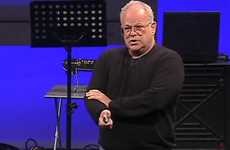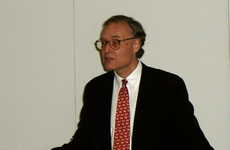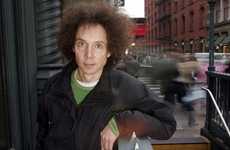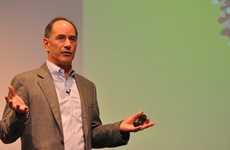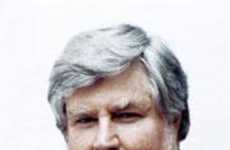
Glenn D. Wilson Keynotes
Glenn D. Wilson’s psychology lectures primarily focus on topics such as sexual attraction,...

Need Inspiration?
Get inspired by 4,000+ keynote speaker videos & our founder, a top keynote speaker on innovation.
Glenn D. Wilson's Psychology of Creativity Speech Introduces His Theory
Vasiliki Marapas — October 17, 2013 — Keynote Trends
References: youtube
Psychology expert Glenn D. Wilson explores the parallels between madness and creativity in his psychology of creativity speech. Many notable names throughout history have been associated with antisocial or delusion tendencies. For instance, Serbian scientist Nikola Tesla spoke eight languages, had a photographic memory and made many scientific contributions. However, Tesla also suffered obsessional compulsive behavior, claimed to be in communication with other planets, and was both reclusive and celibate.
Wilson suggests that there is often a genetic link between these behaviors, noting that close relatives of highly creative people often suffer from schizophrenia. Creative people also often suffer from childhood traumas that can manifest creatively; but this too can be linked back to genetics, since the child maltreatment is often explained by a genetic factor within the parent.
As for the link between genius and madness, Wilson identifies overlapping behaviors such as grandiose ideas, extreme self-indulgence and workaholic tendencies. With the exception of writers, high levels of mental illness tends to disrupt creativity. Wilson suggests that perhaps creative people are on a “continuum towards being crazy.” What appears to differentiate people suffering from madness from highly creative individuals is the degree to which they are able to exercise control and insight towards their behavior.
Wilson suggests that there is often a genetic link between these behaviors, noting that close relatives of highly creative people often suffer from schizophrenia. Creative people also often suffer from childhood traumas that can manifest creatively; but this too can be linked back to genetics, since the child maltreatment is often explained by a genetic factor within the parent.
As for the link between genius and madness, Wilson identifies overlapping behaviors such as grandiose ideas, extreme self-indulgence and workaholic tendencies. With the exception of writers, high levels of mental illness tends to disrupt creativity. Wilson suggests that perhaps creative people are on a “continuum towards being crazy.” What appears to differentiate people suffering from madness from highly creative individuals is the degree to which they are able to exercise control and insight towards their behavior.
2.2
Score
Popularity
Activity
Freshness




